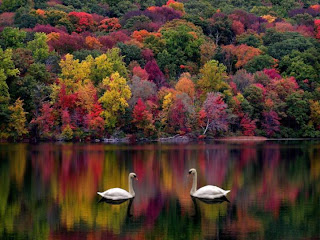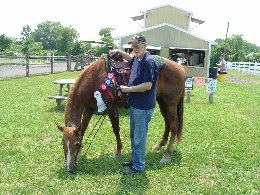Thursday, August 9, 2007
THE DEATH OF MY BEST FRIEND
It is not death that makes cowards of us all, it`s the living with that knowledge. All of what the world knows of us, all of our personality, our character, is nothing more than our feeble attempt to deny our finiteness. And yet, in our time on earth, we are sometimes fortunate enough to be touched by another`s struggle. The basic humanness of it.
In trying to understand the waste in the death of my friend, I`m drawn again to the work of the Anthropologist Ernest Becker. In his seminal works, “The Denial of Death” and “Escape From Evil”, published posthumously, Becker ponders the central problem of human existence, the human as part animal-part god. We are that which has self knowledge as the Gods, yet are aware that we are flesh and blood and must die. It is that self awareness of our mortality that drives us to attempt to transcend our fate through the value we place in certain cultural institutions.
The power of the state and religion are poignant examples of our attempts to identify with immortal institutions, to become something larger than oneself. And yet, Becker ponders why the destructiveness and evil in our history, why such viciousness in the name of our cultural institutions?
For him and for me, the answer lies in that dichotomy of god-animal that separates us from the unthinking, that gift from the Creator so exquisitely described in the Book of Genesis. We are the animal that must feel heroic in order to transcend death anxiety, yet are inundated with guilt by our very heroism, our very identification with the cultural institutions of our society. It is guilt at its most primitive level, that which is associated with our feeble attempts to become god-like, to become more than animal.
Becker suggests that it is our expiation of guilt that has led our cultural institutions to engage in countless wars, to sacrifice millions of our kind in service to our own mortality. Those within our ranks who question the “rightness” of our value systems must be persecuted; countries with different ideologies must be destroyed. And yet, through the bloodshed and destruction, a most central part of us realizes the illusion and fetishism inherent in this scapegoating. These destructive acts offer only temporary relief from our knowledge that we are less than Gods, that someday soon we will all die.
Within these wars and murders I believe there are many more victims than the sacrificed. Freud, Rank and Becker spoke of the “artist”. In the widest sense, the artist is he/she who by temperament and life experience is more widely open to the knowledge of his/her own mortality. I believe there are three solutions to this conundrum; “madness”, artistic expression through the use of sublimation and a deep abiding faith in the Creator. I define “madness” in the widest sense, the use of brittle defensive postures to repress primal anxiety. It`s my belief that my friend hadn`t the depth of faith to sustain him through the horrors of Vietnam; I`m not sure if many of us would. Through drug usage he experienced “madness” with no relief. Finally, his life experience, his “Thrownness” into the world, denied him the courage of artistic expression. There was little left for him but the gradual giving in to his mortality through excessive drinking.
Other than the war,I know of little that separates my circumstances from Ed`s. I`ve felt the “madness”, I`ve denied myself artistic expression lo these many years, I`ve had doubts of the Creator. Yet here I am, trying to write, feeling a deeper understanding of the Creator. Ed`s sacrifice is akin to all of us artists, millions of us who struggle to express ourselves, knowing few masterpieces will be created. Yet, we struggle on.
Friday, August 3, 2007
A U T U M N

AUTUMN
Each morn
a minute later,
the sun arises
over the river.
Each dawn
a degree south,
on its journey
to the Equator.
following the sun;
disciplined V`s
collapse and rest.
Bees and wasps
flitting lazily,
the sun signalling
the end of struggle.
Leaves depart,
depending on the kindness
of strangers,
for their blaze of glory.
Autumn, inexorable,
cloaks its arrival
in glorious colors,
soon to be blanched
by winter`s snow.
Written October 12, 2006

I`m not sure of all that has stopped me from writing since my hospitalization. I know of terror and I think of some of my readers who have been living with that knowledge. I look back at much that I have written about the universal denial of death and its primary importance in limiting us and our cultural world view. About Becker, and his amazing presentation that has so fueled my thinking. And I realize the utter truth in his words in my week-long hospital stay. Not just the knowledge that my life is limited but that the terror inherent in that knowledge, the abyss, the “sickness unto death”, is real and inescapable. Even now, part of me wants to describe those nights of despair, of hopelessness. Perhaps some of it may make good poetry, maybe. But I think of my readers, you know who you are. I think of the courage I find in your writings. Even in the darkest of those hospital nights I felt myself buoyed by thoughts of you, of your struggles to be, your acknowledgement of the terror. And my patients, and my son, and especially, S.
V